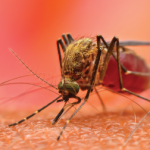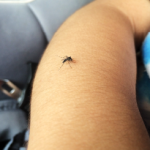NEW YORK (Reuters Health)—More than half of those infected by the mosquito-borne Chikungunya virus will go on to experience chronic articular pain or arthritis, according to Brazilian researchers.
Chikungunya—meaning “to become contorted” in the Makonde language—was first described during an outbreak in Africa in the 1950s. Many outbreaks have since occurred in Africa, Asia and Europe, but it wasn’t until 2013 that the first autochthonous American case was documented, Dr. Fernando Edington and colleagues at Universidade Estadual de Santa Cruz note in Joint Bone Spine, online July 24.1
“The Pan American Health Organization reported in 2014 more than one million suspected cases of Chikungunya fever in the American continent in 2014. According to our data, 500,000 people (52% of the infected people) may have persisted with articular pain or arthritis for at least three months after the initial infection by Chikungunya virus,” Dr. Edington tells Reuters Health by email.
Dr. Edington and colleagues came to these conclusions after a systematic review and a meta-analysis of 18 studies conducted in the Americas between 2014 and 2018 involving 2,415 patients. The sample size ranged from 10 to 485 patients.
Overall, the study quality was deemed to be low and information on post-Chikungunya chronic symptoms were obtained via interviews in most cases. Only three studies evaluated the patients by means of clinical examination.
Follow-up ranged from 10 to 72 weeks and the pooled incidence of chronic articular symptoms in patients followed for more than 30 weeks was 54% compared to 52% in those with shorter follow-up. Incidence was similar with no significant differences across studies in South, Central and North America.
The researchers observe that despite the high incidence of these symptoms there is no specific treatment “besides hydration and analgesics.”
“The lack of transmission control,” Dr. Edington says, “the high incidence and economic burden associated with Chikungunya fever and its chronic forms should alert healthcare providers on the risks of new epidemics in the American continent.”
Reference
- Edington F, Varjão D, Melo P. Incidence of articular pain and arthritis after chikungunya fever in The Americas: A systematic review of the literature and meta-analysis. Joint Bone Spine. 2018 Jul 24. pii: S1297-319X(18)30145-3. doi: 10.1016/j.jbspin.2018.03.019. [Epub ahead of print]


